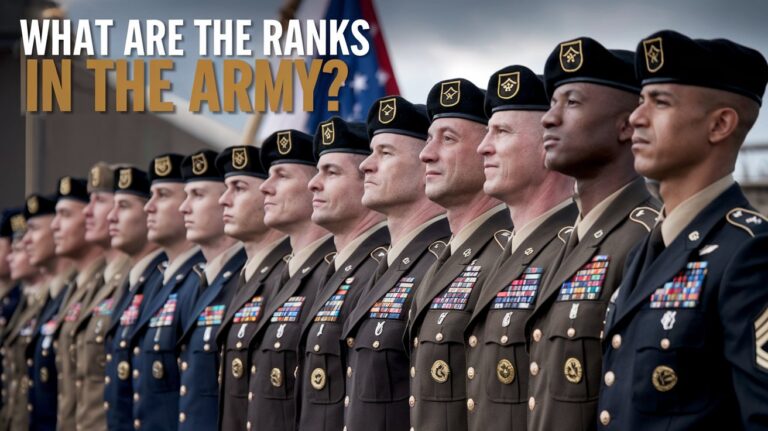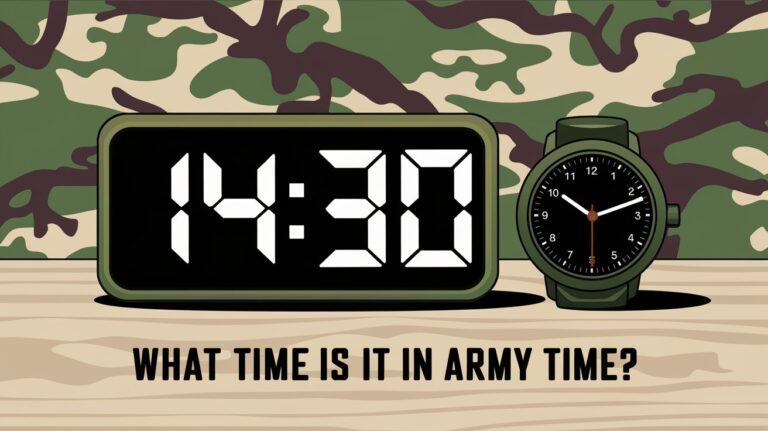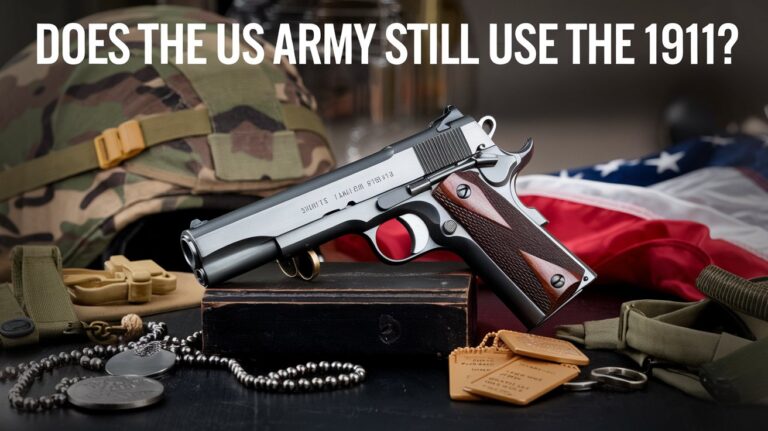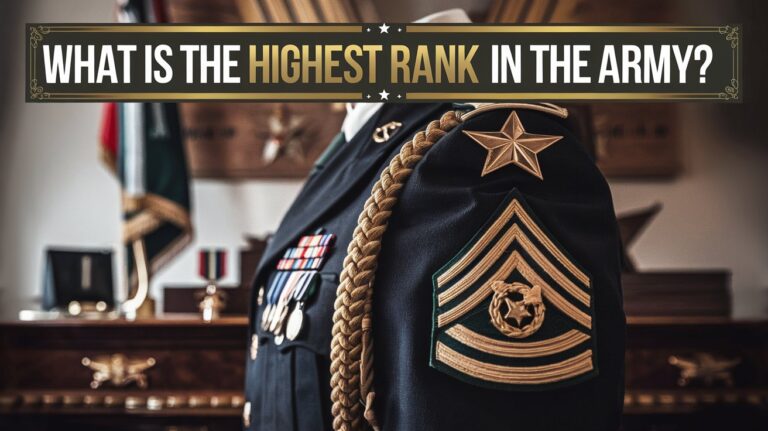Does Palestine Have an Army: Current Defense Forces & Capabilities
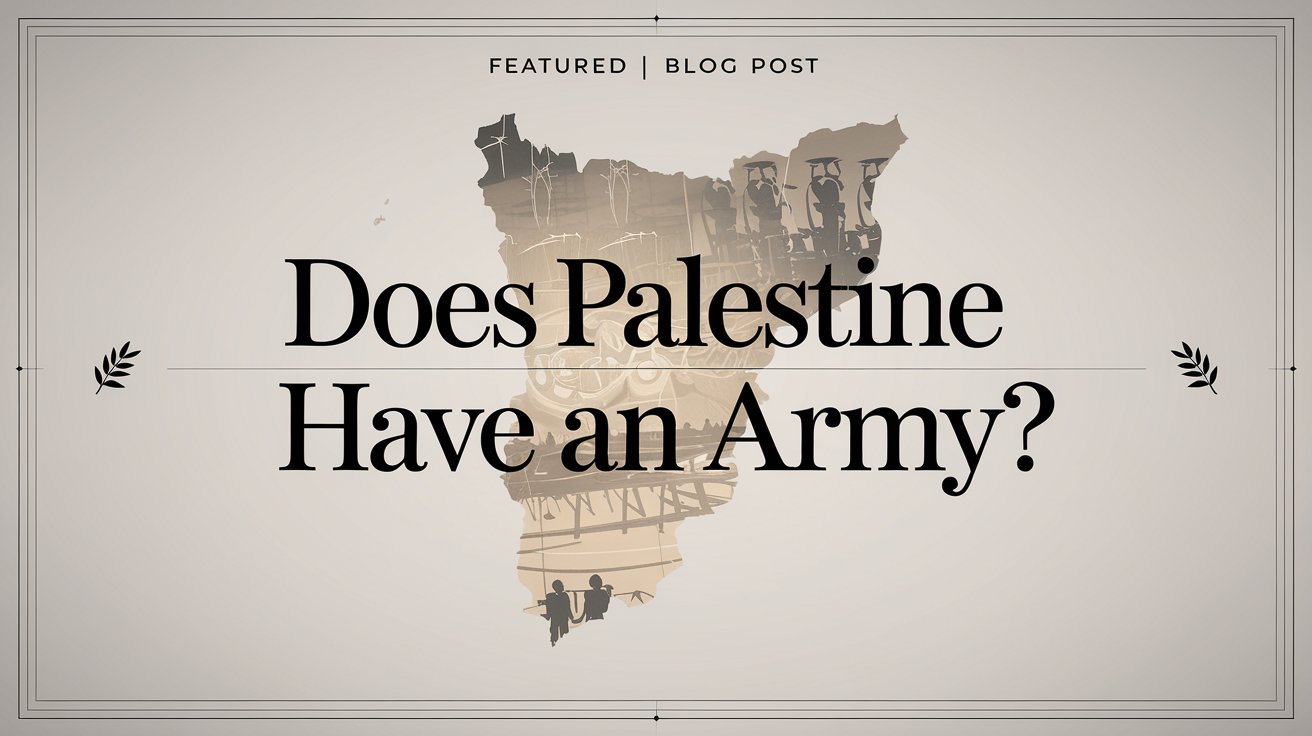
The Palestinian National Authority (PNA) can’t have a regular army. They are allowed to have a police force with some military skills. This force is called the Palestinian National Security Forces (NSF). By 2007, the NSF had about 42,000 members, making it a big security force in the area.
The NSF does police work and helps catch militant groups. They also work with Israel to solve crimes. Even though the Palestinian security forces have grown, their main job is to keep the peace and security in areas controlled by the PNA.
Current State of Palestinian Military Forces
The Palestinian National Security Forces (NSF) are key to keeping the Palestinian territories safe. They have different groups like Security Services, Military Intelligence, and Naval Police. Each group has its own job and skills.
Palestinian National Security Forces Structure
The NSF works under rules set by agreements with Israel and the Palestinian National Authority (PNA). Israel checks who can join the NSF. In the West Bank, Major General Nidal Abu Dukhan leads the NSF. In Gaza, Brigadier General Naim Al-Ghoul is in charge, thanks to Hamas.
Military Intelligence and Special Units
The Military Intelligence part of the NSF gathers outside military info. It has grown into the NSF Military Intelligence Department. The Palestinian military also has special teams for fighting terrorism.
Force Strength and Capabilities
The NSF has about 10,500 people, mostly in the West Bank. They get training from Jordan and the U.S. through the United States Security Coordinator (USSC) program. But, there are actually over 45,000 in the Palestinian security services, even though there’s a limit of 30,000 police.
| Location | Population | NSF Personnel |
|---|---|---|
| West Bank | 2.8 million | 10,500 |
| Gaza Strip | 2 million | Undisclosed |
| East Jerusalem | 360,000 | Undisclosed |
“The proliferation of security forces within the Palestinian Authority is a significant burden on the economy.”
Historical Development of Palestinian Armed Forces
The roots of the Palestinian armed forces go back to 1964. This was when the Palestine Liberation Organization (PLO) was set up. It aimed to unite different Palestinian groups under one leadership.
The Palestine Liberation Army (PLA), the PLO’s military wing, was created in 1968. It played a big role in many conflicts, like the Six-Day War and the Lebanese Civil War.
Yasser Arafat took over the PLO in 1969. He helped the PLO become known as the true voice of the Palestinian people. The PLA grew, with brigades named after important battles.
Over time, the Palestinian security forces changed. The Palestinian National Security Forces (NSF) became the main force for law and security in the 1990s. It was built on the PLA, with more local people joining.
- The Palestine Liberation Army (PLA) was formed in 1968 as the armed wing of the PLO.
- The PLA participated in various military operations, including the Six-Day War, Yom Kippur War, and the Lebanese Civil War.
- The PLA had three brigades named after historic battles: Ayn Jalut in Gaza, Qadisiyyah in Jordan, and Hattin in Syria.
- After the Oslo Accords, the Palestinian National Security Forces (NSF) emerged as the primary law enforcement and security apparatus, with the PLA as its foundation.
The history of the Palestinian armed forces shows the complex situation in the region. It has been shaped by long conflicts and outside help. The shift from the PLA to the NSF shows how Palestinian security forces have changed. They continue to fight for a state of their own.
Palestinian Security Services Post-Oslo Accords
The Oslo Accords of 1993 were a big change for Palestinian-Israeli security. They let the Palestinian National Authority (PNA) start a police force with some military powers. But, they didn’t allow a full military.
Legal Framework and Limitations
The Oslo Accords and later agreements set rules for Palestinian security forces. They control the size, structure, and what they can carry. Israel can check who joins and stop those with a terrorist past. But, by 2002, the forces were bigger and better armed than allowed.
International Agreements Impact
The oslo accords and other agreements changed Palestinian security. Talks in Oslo in 1992 started it all. Then, agreements in Cairo and Oslo II in 1995 defined roles in the West Bank and Gaza. The Hebron Protocol in 1997 gave the Palestinian Authority control over most of Hebron.
Security Cooperation with Israel
Despite rules, Palestinian security forces work with Israel. Since 2008, they’ve teamed up to fight armed groups in the West Bank. This partnership means Israel is less involved over time.
| Palestinian Security Forces | Strength |
|---|---|
| National Security Force | More than 14,000 officers |
| Civil Police | Over 10,000 police officers |
| Preventive Security Force | Close to 5,000 agents |
| General Intelligence | Around 3,000 officers |
| Coast Guard | Approximately 1,000 officers |
| Presidential Security | Estimated at 3,000 officers |
Does Palestine Have an Army?
The Palestinian territories don’t have a formal army. But they have the Palestinian National Security Forces (NSF). This group, with about 42,000 troops in 2007, works in areas controlled by the Palestinian National Authority. They focus on law enforcement.
But, the Palestinian resistance has grown strong over time. Groups like Hamas have shown they can use traditional warfare. For example, the October 7, 2023 attack on Israel showed their strength. They have between 30,000 to 50,000 troops, with Hamas possibly having up to 40,000 fighters and Islamic Jihad having 8,000-9,000.
On the other hand, the Israeli Defense Forces (IDF) is much bigger. They have nearly 170,000 active soldiers and a budget of $20.5 billion. The IDF also has more air and naval power, with hundreds of fighter jets and various naval ships.
Palestinian National Authority is trying to build a security force. But, they face big challenges because of ongoing political and territorial issues. The West Bank is partly controlled by the Palestinian Authority and Israel. Gaza is mostly run by Hamas.
Training and Equipment of Palestinian Forces
The Palestinian security forces have a wide range of military gear. They use small arms like pistols, submachine guns, assault rifles, and machine guns. These are bought from different countries around the world.
Weapons and Artillery Systems
Their small arms include pistols like the Zastava M70 and Beretta 92. They also have submachine guns, such as the Heckler & Koch MP5. Their assault rifles include the M4 carbine and AKM.
Machine guns in their arsenal are the FN MAG and M1919 Browning. This variety helps them in their security work.
Vehicle Fleet and Infrastructure
The Palestinian security forces have a wide range of vehicles. They use Ford F150 pickup trucks and Toyota Hilux utility vehicles. They also have Land Rover Defender SUVs and Volkswagen Caravelle transport vans.
They also have personal gear like the Personnel Armor System for Ground Troops. And they wear SPECTRA helmets for protection.
Training the palestinian security forces is helped by international partners. A 2014 program by the Italian Carabinieri is one example. It aimed to improve their skills and use of palestinian military equipment.
| Equipment Type | Examples |
|---|---|
| Pistols | Zastava M70, CZ 82, Zastava CZ99, Beretta 92 |
| Submachine Guns | Heckler & Koch MP5, Zastava M92 |
| Assault Rifles | M4 carbine, Zastava M70, AKM, M16 |
| Machine Guns | FN MAG, PK machine gun, M1919 Browning |
| Vehicles | Ford F150, Toyota Hilux, Land Rover Defender, Volkswagen Caravelle |
| Personal Gear | Personnel Armor System for Ground Troops, SPECTRA helmets |
Palestinian Naval and Coast Guard Operations
The palestinian naval police is key in protecting Gaza’s waters. It’s a big job for the Palestinian National Security Forces. But, not much is known about their work, skills, and tools.
The gaza coast guard does many things to keep the coast safe. They watch the coast, check on fishing, and stop smuggling. They do their best with what they have to keep the area secure.
- The palestinian naval police guards the sea borders and resources in Gaza.
- There’s not much info on how big they are, their training, or what they use.
- The gaza coast guard patrols, watches fishing, and stops smuggling in Gaza’s waters.
- Despite the hurdles, they work hard to keep the sea safe and protect the coast.
Work of the palestinian naval police and gaza coast guard is vital for the Palestinian territories. They help keep the area stable and safe for everyone. As the region faces many challenges, these forces are more important than ever.
Military Intelligence and Counter-Terrorism Units
The Palestinian military intelligence branch, known as the NSF Military Intelligence Department, is key in gathering external military intelligence. It helps the Palestinian National Security Forces. This unit has grown to improve the Palestinian security forces’ ability to gather and analyze strategic information.
Palestinian security forces are also involved in counter-terrorism operations. They target militant groups and work with Israeli authorities to tackle security threats. But, there are reports that Palestinian security forces sometimes release arrested terrorists. Then, they quietly tell Israel to avoid public criticism.
Intelligence Gathering Capabilities
The Palestinian military intelligence unit has become skilled in collecting and analyzing external military intelligence. They use various techniques and technologies to stay updated on regional security and potential threats. This skill is crucial for the Palestinian National Security Forces to handle security challenges well.
Counter-Terrorism Operations
- Palestinian security forces have carried out counter-terrorism operations against militant groups like Hamas and Palestinian Islamic Jihad (PIJ).
- These efforts include arresting suspected terrorists and working with Israeli authorities to coordinate security actions.
- But, there are reports that Palestinian security forces sometimes release arrested terrorists. Then, they secretly tell Israel, possibly to avoid public backlash against handing over Palestinians to Israeli authorities.
Balance between Palestinian counter-terrorism efforts and the political sensitivities of the conflict with Israel shapes the evolving role of the Palestinian military intelligence and security forces.
International Support and Training Programs
The growth of Palestinian security forces has been boosted by international help and training. Since the mid-1990s, the United States has been a major supporter. It has given financial and personnel aid to groups like the Palestinian National Security Forces (NSF) and the Presidential Guard.
The goal is to train, equip, and deploy 10 NSF battalions by 2010. This support aims to strengthen the security forces.
Other countries and international groups have also helped. In 1993, a police donor conference in Oslo brought together nations to support the Palestinian security services. The CIA then ran a secret program from 1996 to 2000 to improve these services.
In 2005, the United States Security Coordinator (USSC) team was set up to offer more support and training. This was matched by the creation of the Palestinian-International Transitional Security Planning Team (TSPT). Together, they have worked to enhance the Palestinian security forces’ abilities.
These efforts have been vital in shaping the current state of Palestinian security force training. They have also received both praise and criticism over time.
Challenges Facing Palestinian Military Development
The growth of the Palestinian military is tough due to lack of resources and political hurdles. The West Bank is divided into Areas A, B, and C after the Oslo Accords. This limits the Palestinian Authority’s control, affecting the Palestinian National Security Forces (NSF) in Area C, which is 60% of the West Bank.
Resource and Infrastructure Limitations
The Palestinian military faces big challenges in resources and infrastructure. These include:
- Not having access to modern weapons and equipment because of the Israeli blockade and international sanctions
- Having old and not well-kept military bases, training spots, and support systems
- Not having enough money, making it hard to train staff and update equipment
Political and Territorial Constraints
The political and territorial limits also add to the challenges. These are:
- The Israeli occupation limits the NSF’s work, as they can’t carry arms or move freely in uniform
- The West Bank is split into Areas A, B, and C, with Israel controlling Area C, which is 60% of it
- The ongoing tensions and lack of unity between the Palestinian Authority and Hamas, which control the West Bank and Gaza respectively, make coordination hard
These issues make it hard for the Palestinian military to grow and be effective. They limit its ability to keep security and deal with the palestinian military challenges and west bank security issues.
Strategic Role in Regional Security
The Palestinian security forces have a complex role in the Middle East. They work with Israeli authorities on some security issues. Yet, they face big challenges in keeping their own areas stable and secure.
Internal political divisions add to the problem. The 2007 Fatah-Hamas conflict in Gaza is a clear example. The October 7, 2023 attack by Hamas has made things even harder. Despite these hurdles, the Palestinian Authority keeps improving its security forces.
Office of the U.S. Security Coordinator (USSC) helps a lot. Led by Lieutenant General Michael R. Fenzel, they aim to make the Palestinian security forces strong and effective. They work on reform, cooperation, and finding peace.

